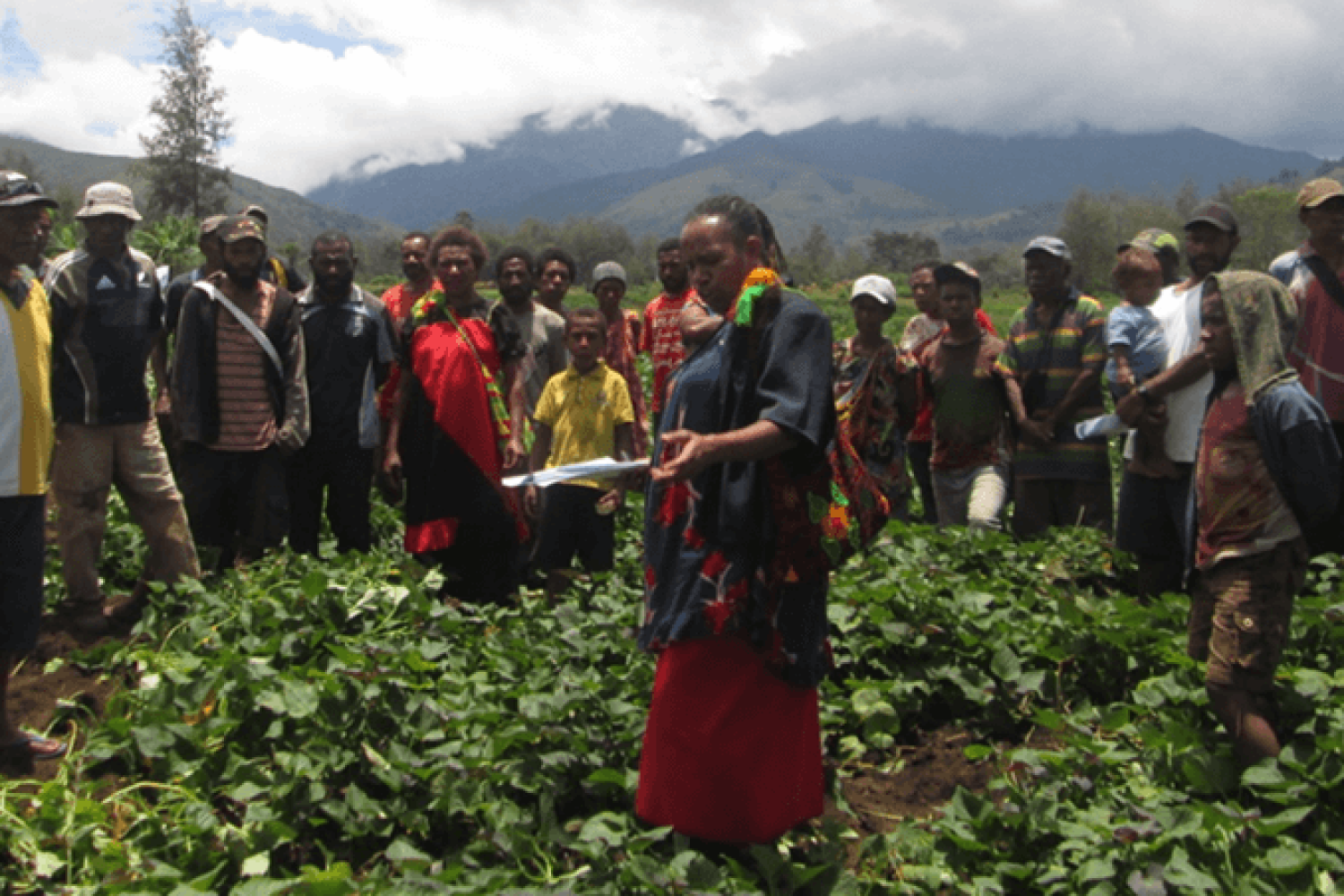At Sustineo, we’ve been working with our local partners in Papua New Guinea (PNG) on promoting the use of seasonal climate information in farming communities to improve agricultural production. By doing so, the aim is to improve food security for rural communities in PNG.
Sustineo’s Ellis Mackenzie and Tom Sloan recently completed a monitoring and evaluation (M&E) report as part of our multi-year project: Climate Smart Agriculture opportunities for enhanced production in PNG, funded by the Australian Centre for International Agricultural Research (ACIAR). This report is the output of our work with the Australian National University Institute for Climate, Energy & Disaster Solutions (ANU ICEDS) and a range of other domestic and PNG-based project partners.
One of the key elements of the project is to understand the “knowledge landscape” (i.e. how people share and receive information with each other) of communities in PNG so that seasonal climate information can be accurately targeted to community needs. The project aims to facilitate the use of seasonal climate forecasts (SCF): a probabilistic forecast of temperature and rainfall conditions given three to six months in advance. This medium- to long-term information needs to be contextualised and shared with PNG farming communities along with guidance on different farm management responses based on different weather scenarios. If farmers can access and use this information to inform agricultural production decisions, like what and when to plant, they can improve their capacity to adapt to climate variables.
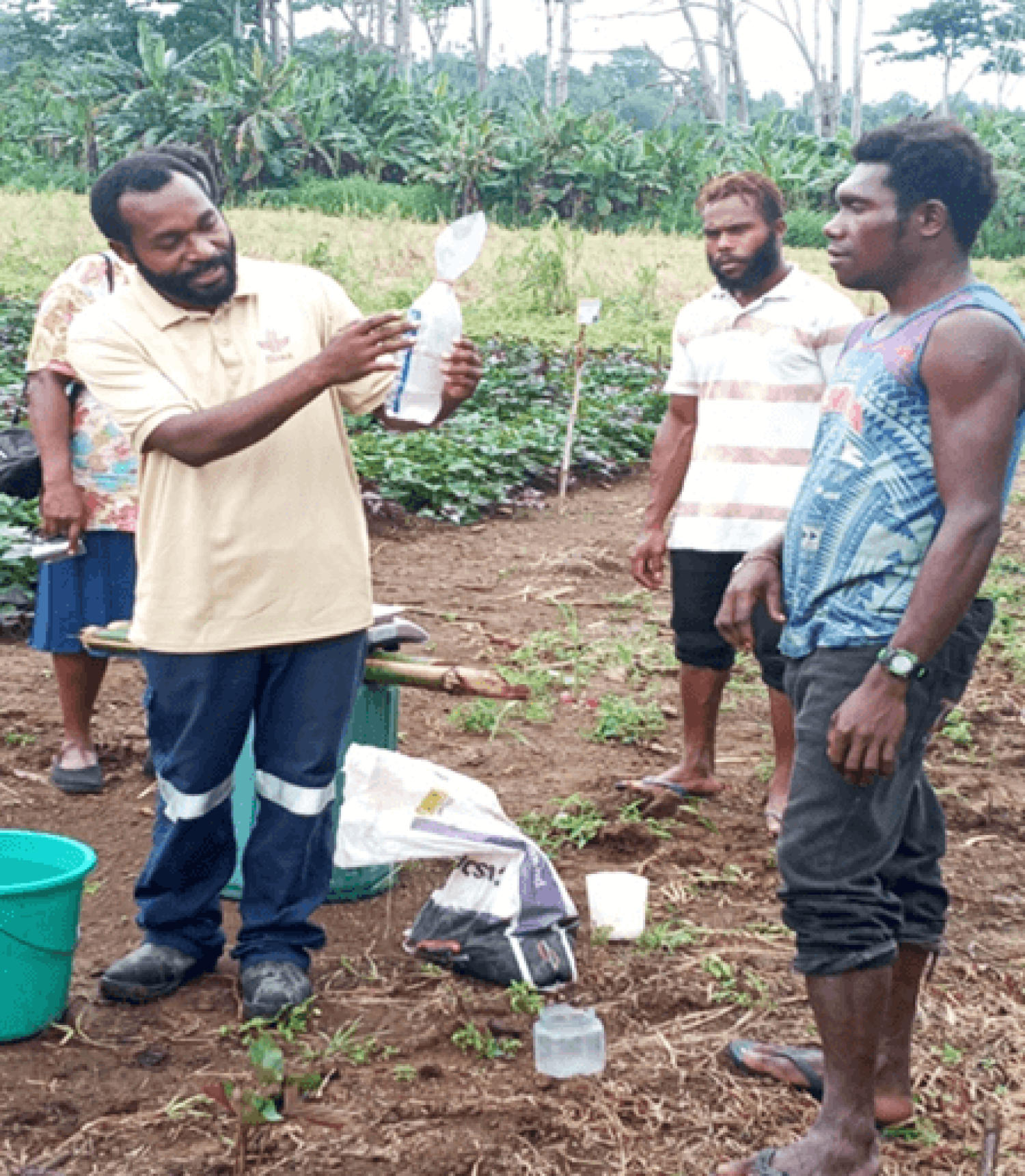
A key focal point of our M&E is the work that our PNG-based partners, National Agricultural Research Institute (NARI) and the Fresh Produce Development Agency (FPDA), are doing to engage with local farmers. Effective engagement with participating farmers and the broader community is critical to the project’s overall success, as services and information needs to be delivered in a way that is easily accessible for locals.
An important element of the project is the use of field trials to inform farmers about the benefits of incorporating SCF into farming decisions. NARI and FPDA have established field trials across case study locations which serve as demonstration sites. Here, farmers can observe and learn about how farm management techniques that utilise SCF compare to traditional farm management techniques that are common in the community.
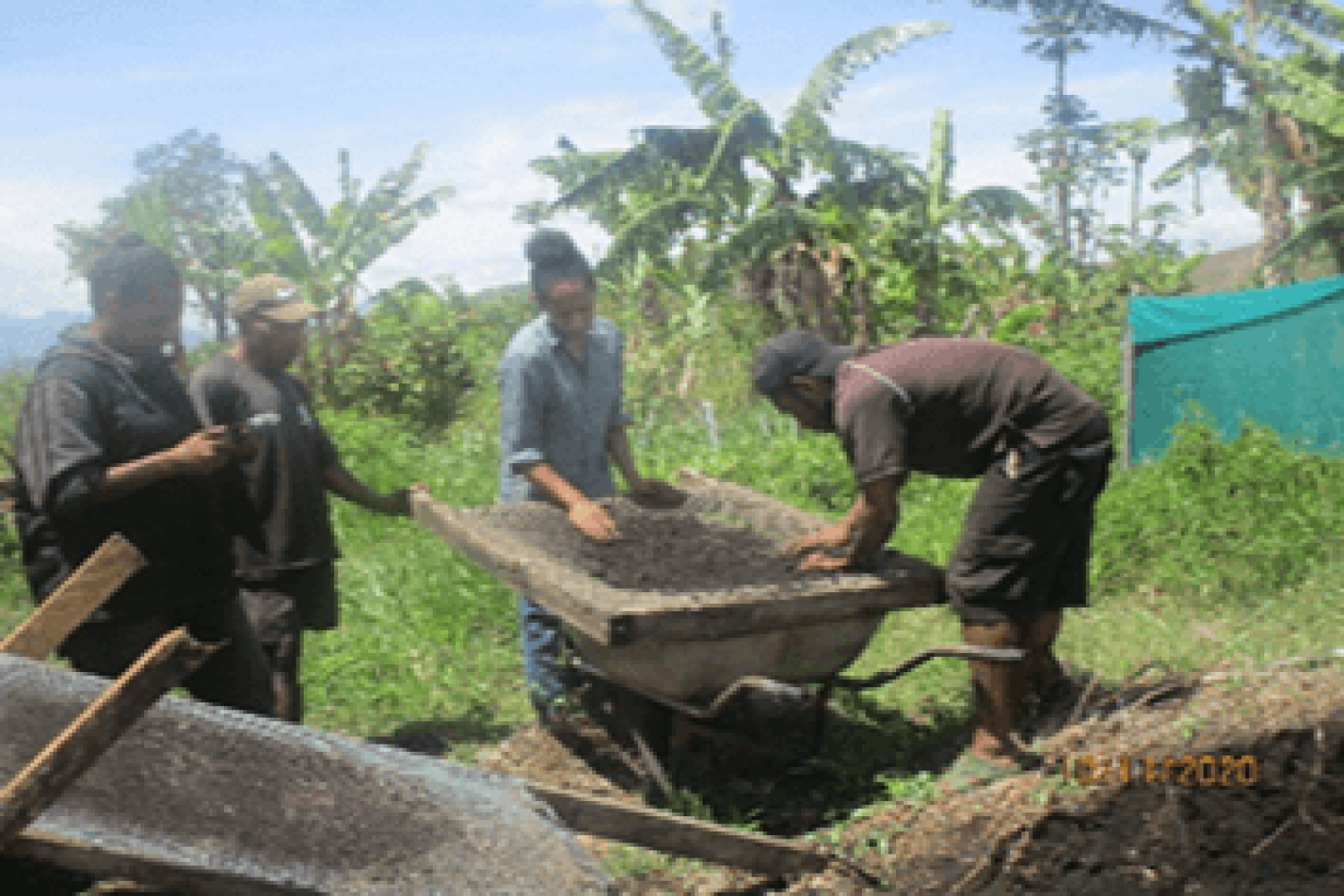
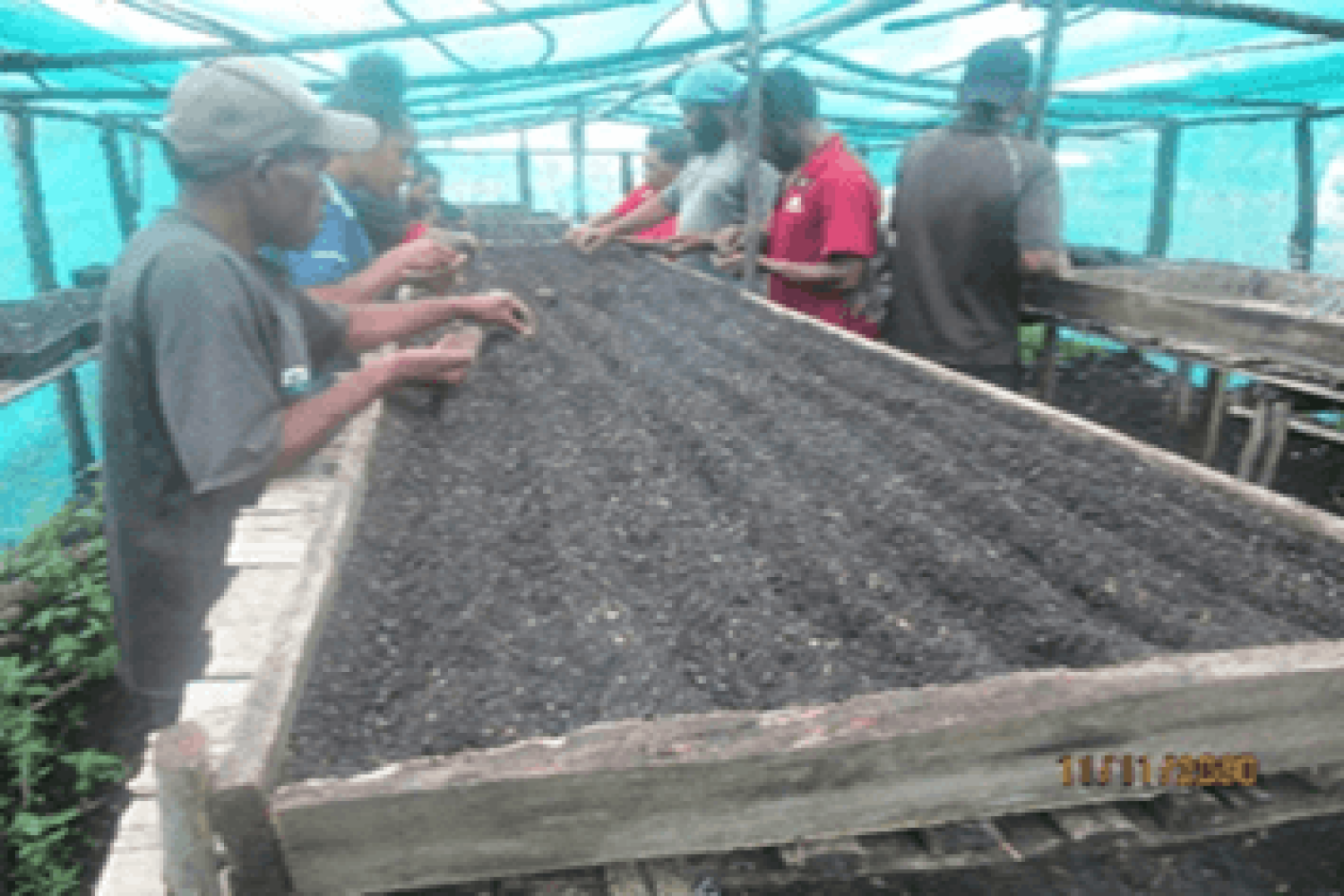
Transplanting of bulb onion seeds for the FPDA Field Trial, Mohuveto village, Bena District, Eastern Highlands province (Source: FPDA, 2020)
A successful outcome of the field trials has been the ‘farmer field days’ run by NARI and FPDA at the field trial sites. The field day events let farmers participate in ‘hands-on’ education via taste tests of crops from the field trials. The field trial sites are also important knowledge hubs where extension officers from NARI and FPDA can share information on SCF and its relevance for guiding decision-making in agricultural production.
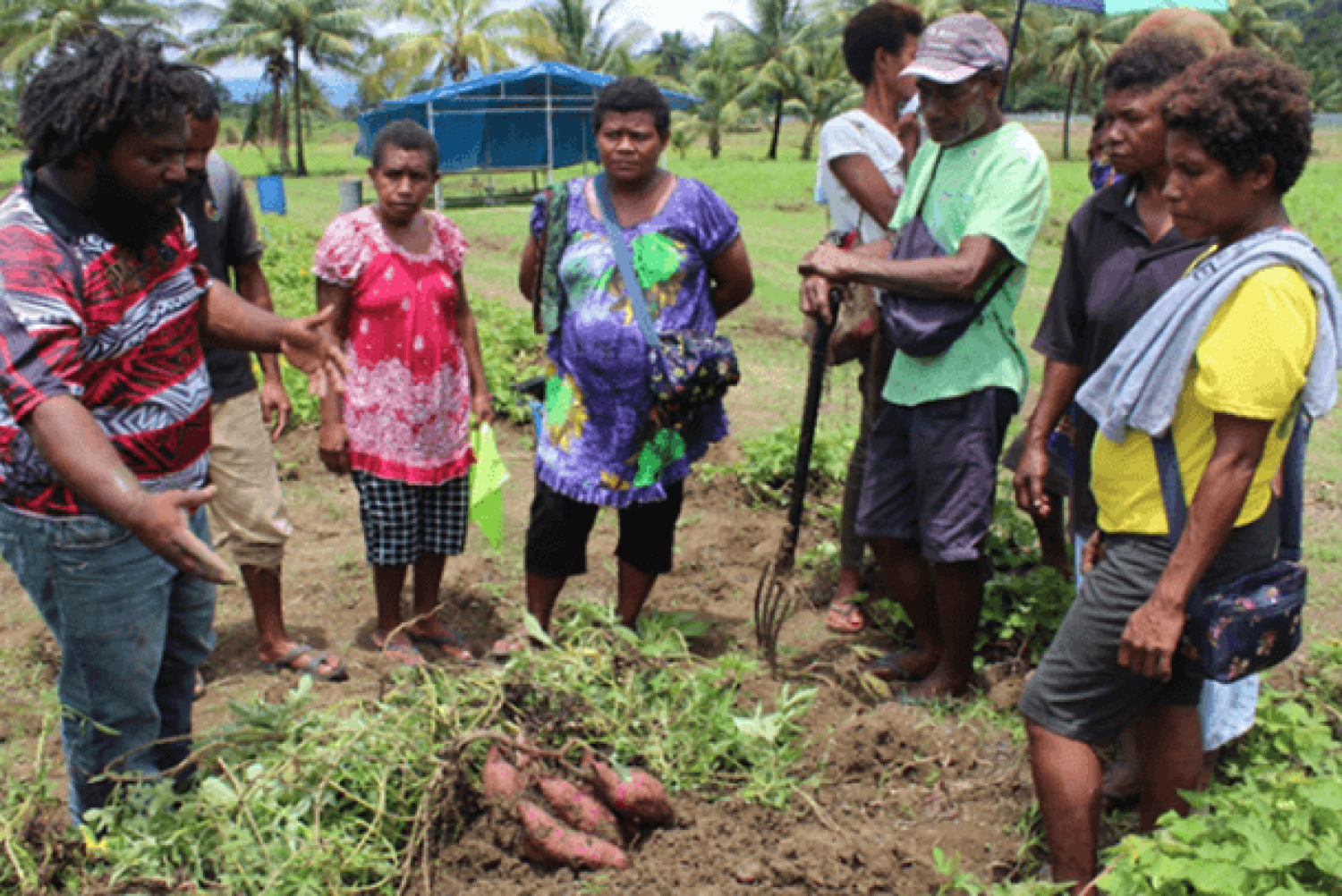
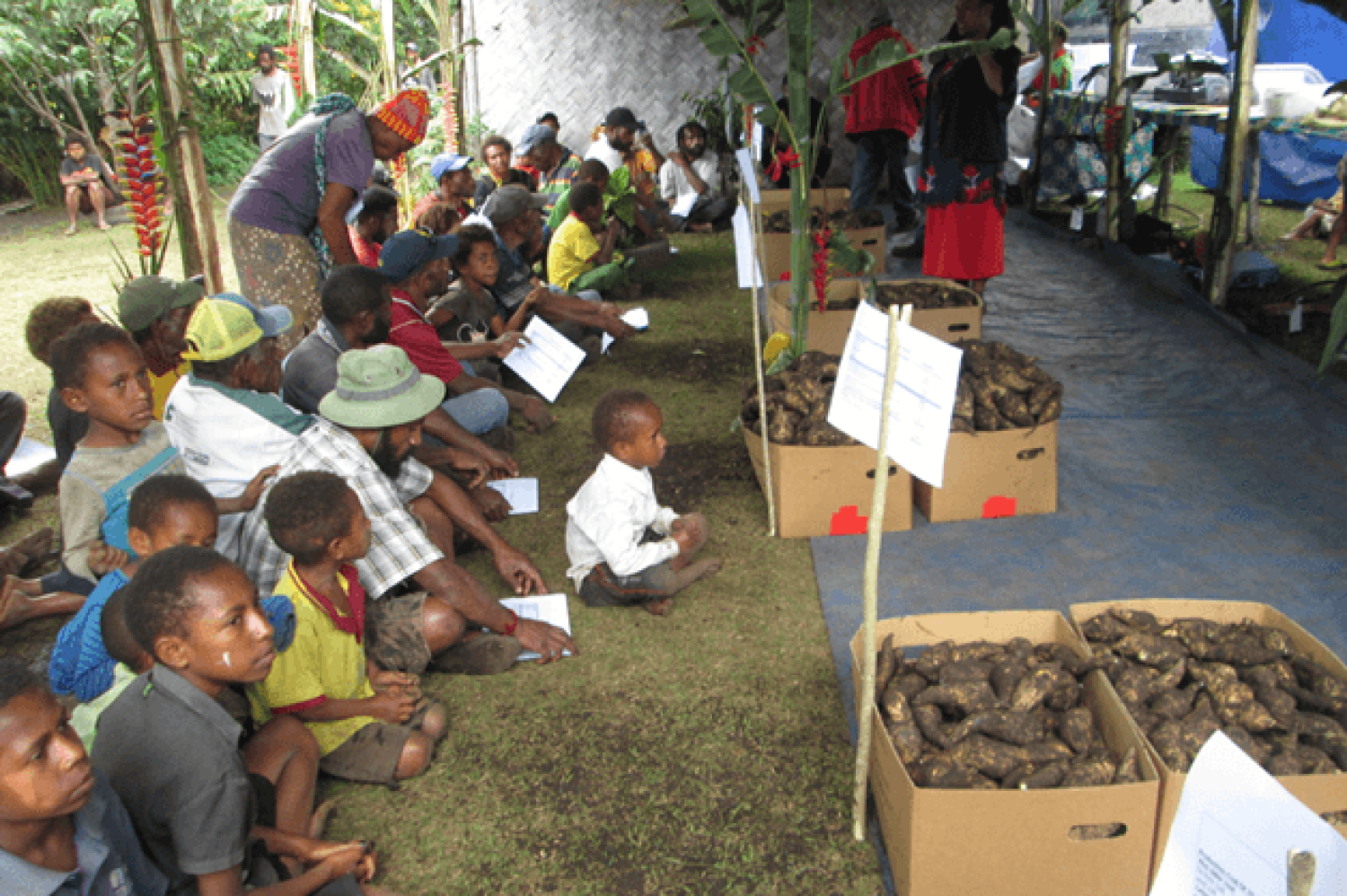
While it’s still early in the project, these field days have provided important opportunities to spark the interest of participating farmers, and to build connections for the delivery of further services which can strengthen their capacity as the project progresses. Ongoing project activities will provide further opportunities for farmers to be exposed to new and improved farming methods, which will hopefully strengthen climate adaptation and food security in the region.
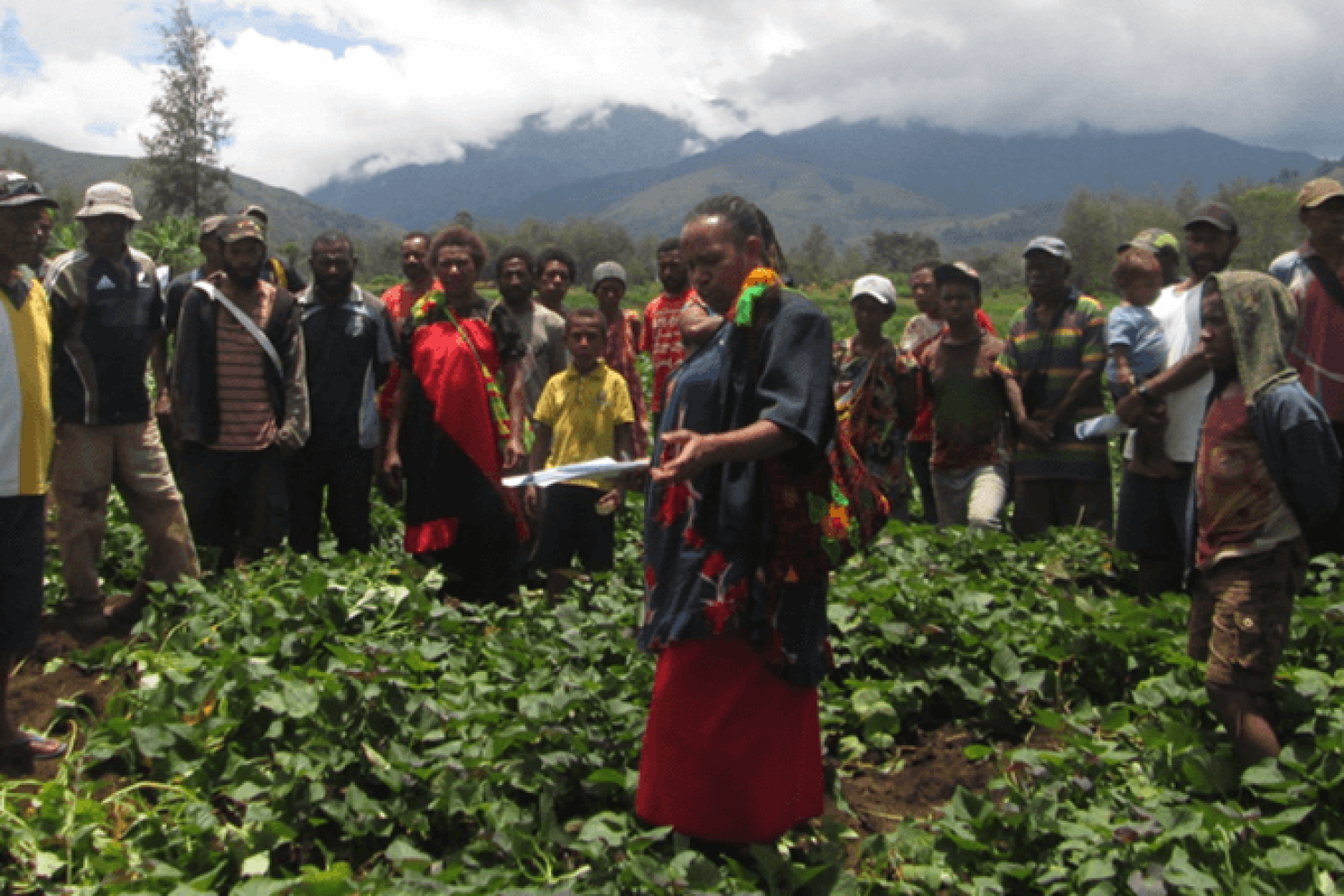
Acknowledgements
Sustineo would like to thank the National Agricultural Research Institute and the Fresh Produce Development Agency for their inputs for this article.
